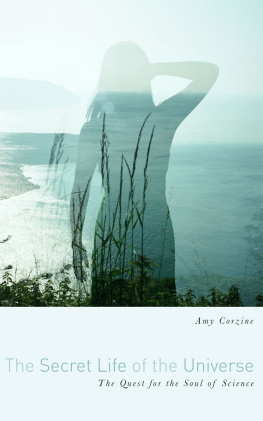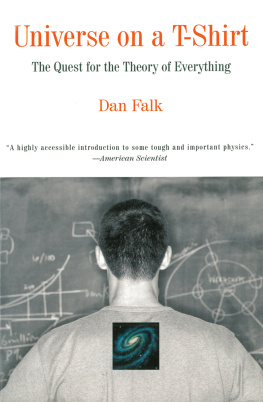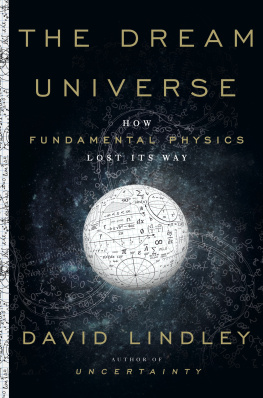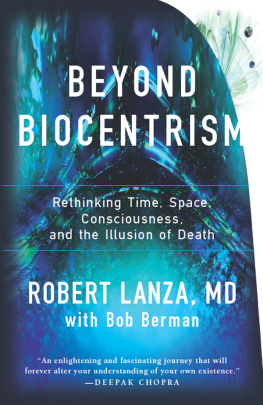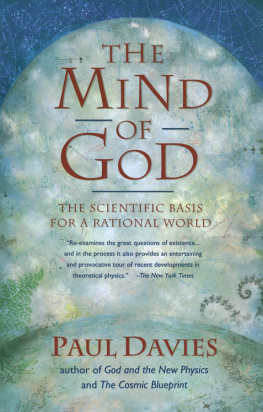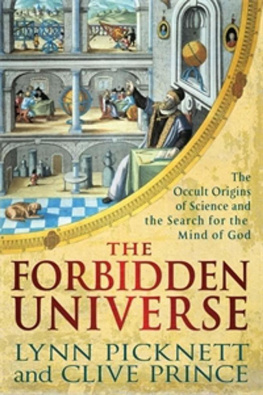Writing a book is a leap of faith, and I am grateful to the inter-viewees and individuals mentioned herein for their inspiration and support before and during this great leap of mine. Many others contributed to its creation, too many to name, but a few people who helped at strategic moments were Professor John C Poynton of the Society for Psychical Research, Eric Swanson, Uri Geller, and Jim Lyons of the British Society of Dowsers, who sent me in interesting directions, ex-physicist David Crawford who corrected me on some fine points regarding science, musician Vicki Tofts who loaned me some significant books and artist/ painter Martyn Lucksford, who gave me lots of information on recessed windows! Kudos also should go to Palden Jenkins, who achieved the well-nigh impossible accomplishment of editing this book with minimal disturbance to its author and to Shelagh Boyd for most carefully catching errors and lightening the texts footnotes. To publisher Michael Mann and poet Jay Ramsay, thank you for your faith in me. Finally, to the guardians of a very special secret garden, the contemplation of which helped me crystallize precisely what I wanted to say, I must offer my most sincere gratitude.
Introduction
I n our new globally-conscious Earth, we are meeting multiple reflections of each other. Needs, desires and limitations we hold in common are reflected like millions of mirrors by our technological forms of communication, from the internet to television, films and music. We learn about ourselves through the stories we hear about others.
Yet somehow we are more distant from ourselves than ever before. Our storytellers are no longer mere mortals sitting in our parlours or standing on a stage. They are now superhuman images on the giant screen bigger than us, out of reach and out of touch. We cannot see the faraway ramifications of our small, insignificant actions, our pointless jobs. So we travel great distances to see, acquire, rise above, control and ultimately lose everything.
Amid the chaos of our disagreements, we must remind ourselves that ours is a planet filled with people wishing to have happier lives, many of whom hope to make a better world but have different perspectives on how this may be achieved. Indias ancient epic The Mahabharata describes life as a battle, and many people believe the world will always be thus.
Battles take many different forms, but the most serious conflicts we face today may not be those between nations, religions, cultures and races. They may be those inside us. If we do not overcome, or at least better manage, our all-too-human vices, our internal battles could turn into a mass battle for survival on a planet of dwindling resources.
Perhaps the only way to overcome the fear behind individual internal battles is to perceive the universe as something that can be managed, and in a manner that will sustain and support life. We could start by managing our little part of Earth this way.
We occupy an illusory realm, Buddhists and Hindus say. This material world appears to be solid, but is not. Within and behind all apparently solid and real forms are energy fields, patterns and structures studied by physicists, medical researchers and parapsychologists. These lie behind all that exists, behind what we know as life.
Still, we must deal with the world as we perceive it. Between the poles of our many differences, we may find a balance between extremes. My hope with this book is to plant a seed that will contribute to finding this balance, a seed that may sprout other seeds that will grow and multiply.
Contemplating this is much like the old Asian story about a frog at the bottom of a well, looking up at the sky a sky that changes with the weather, a weather caused by all sorts of forces that a frog will never understand.
Amy Corzine
Essex, England, 2007
1
Mans Connection To The Universe
There is an invisible way across the sky, Birds travel that way, the Sun and Moon And all the stars travel that path by night.
Kathleen Raine
P erhaps i should begin with an ending. At the end of his book, Gifts of Unknown Things, about communal organic magic on an Indonesian island, Lyall Watson conveys how the universe continually replenishes itself. The dancing islands most special dancer loses her powers to bring under control the natural elements and heal her communitys problems, and so the force needed by the island moves to another child. Thus life goes on, ever replacing what is lost.
One of my early glimpses of this came many years ago when I attended the last lecture in the professorial career of the late Indian philosopher-writer Raja Rao. He had almost single-handedly drawn me out of a post-adolescent depression by conveying, through the philosophies of Hinduism and Buddhism, a quality until then missing from my experience. Summing up his career as well as his talk, he asked, What is the end? Accustomed to his abbreviated circular inversions, I queried, The beginning? I will never forget his liquid eyes as he replied, And every beginning is an end. Both exist in each moment.
Buddhist lamas often describe existence as being like the reflection of the moon upon water. Some people say the universe is infinite, unfathomable, while scientists plot their way through it, step by step, making material use of its mysteries in a way that visionaries and mystics do not.
As Sufi writer Reshad Feild once told me, it is all old information. There is nothing new to find. It is just a matter of uncovering it. And what are we uncovering? Michio Kaku, in his book Visions, suggests that scientists are discovering what will soon enable us to become masters of matter itself. Ironically this poses the greatest threat yet faced by humanity, while at the same moment presen-ting it with the greatest gift of power we have ever had.
The possibility we might function as masters of matter ensnares our concept of what we know as God. Does the universe contain a force that is separate from visible, material bodies, enabling living creatures to be alive and awake? Is this a power we will ever be able to harness?
We are not in control of everything, often not even ourselves. So how are we connected to this vast universe? Does an ocean of microscopic vibrations link everything like some invisible web? Are we part of some vast field of energy or consciousness? Theoretical physics has brought us back to a perception of reality resembling that of many of the worlds past natural philosophers, scientists and pagans. For followers of Wicca or Wyrd, all that we are, and all that happens, is based on past actions.
The metaphor of the Web of Wyrd [illustrates] how the actions of individuals can have widespread effects If we imagine the universe as a big spiders web and that each node where two strands meet represents an event (or a person, or a life) we can visualize the interconnectedness of things.
Our predecessors left behind medical systems and lifetimes of research based upon the notion that everything affects everything else. Prehistoric man may well have perceived things that we in our physically comfortable modern world have never known.

